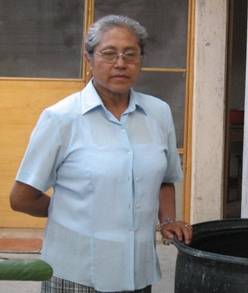Rainwater Harvesting Program
Bravo Ahuja
Imagine only getting municipal water twice a week for two hours!
Imagine not flushing the toilet for two days because there is no water!
Water for Humans is taking action to help alleviate the life endangering effects of major water shortages in Oaxaca City, Mexico. We are responding to the cries for help from numerous families in the besieged Victor Bravo Ahuja district of Oaxaca City. They are asking Water for Humans to help them gain access to clean, safe drinking water.
Together with INSO (our Oaxaca partner), and Seattle University’s “Students In Free Enterprise“, we are building 8,000-gallon rainwater catchment systems – a pilot project to be tested in eight homes in the neighborhood.
This project includes:
- modifying the existing roofs
- installing rain gutters and downspouts
- implementing first flush diverters
- excavating and building underground cisterns
- installing a lift pump (to pump the water up to the roof top tank)
These cisterns will allow these households to effectively capture the rainwater that falls on their roofs. The systems will not require household members to be home or for them to wake up in the middle of the night to fill inadequate containers.
Here is a first-hand portrait of the human toll severe water shortages are exacting from the perspective of one family in Victor Bravo Ahuja!
Suzanna is a community activist in the Victor Bravo Ahuja district of Oaxaca City. She wrote to Water for Humans and the Institute for Nature and Society in Oaxaca (INSO) asking for our help in solving her neighborhood’s chronic water shortages.
This is what Susana told us: “Our neighborhood was a landfill and quarry before becoming a residential district. Originally, water service consisted of two spigots; over time, the delivery system was expanded. Now, due to population growth, it is extremely insufficient. Last year, during the dry season most residences received water only two times per week for a few hours per day. The water…is not potable.”
The total project cost is approximately $32,000 (USD) for the eight households. INSO is leading this effort and we have teamed with Seattle University to provide technical and financial support to make this important project a reality.


